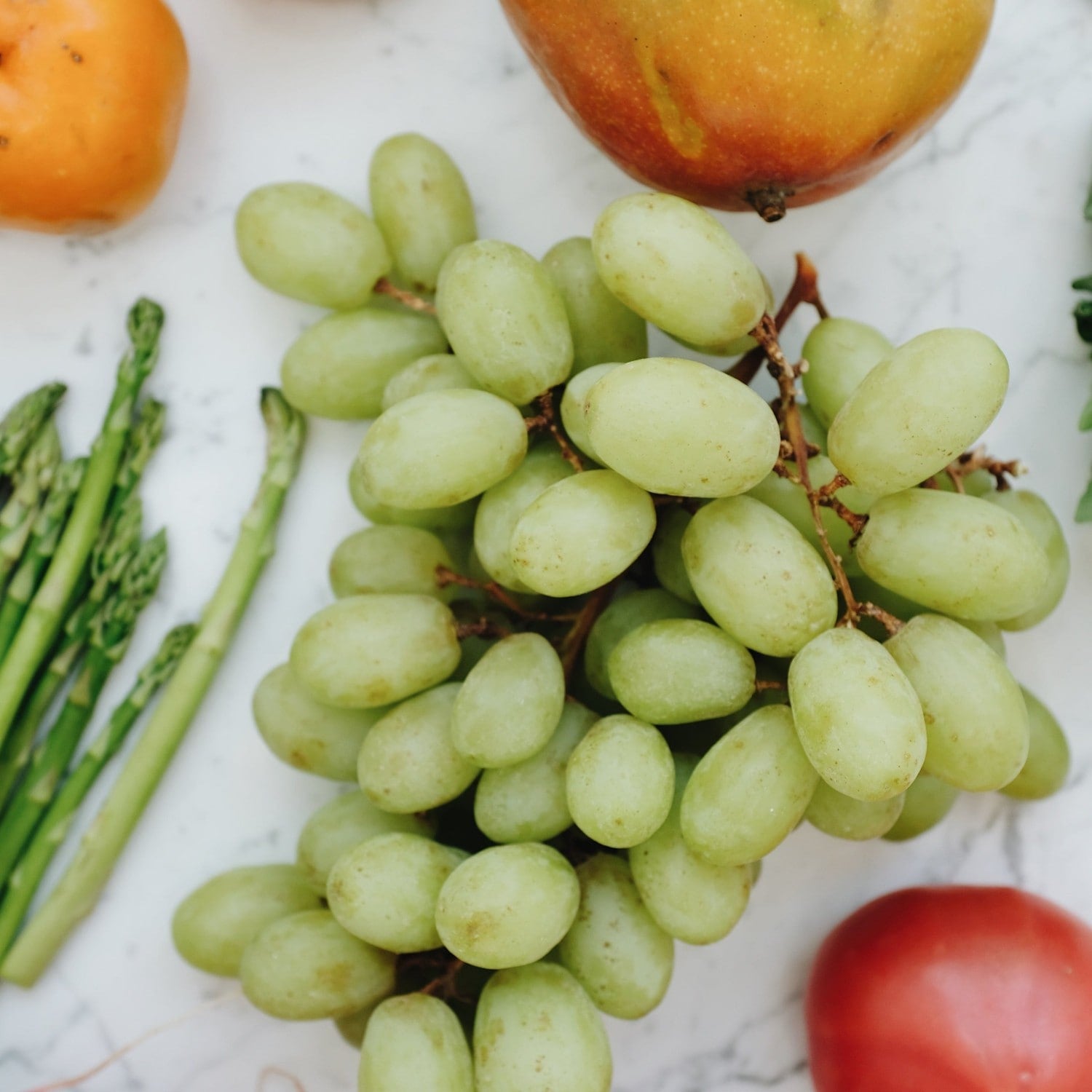When embarking on a fitness journey, many often focus on exercise regimes and protein intake, overlooking the foundational role of nutrition in achieving optimal physical health. At the forefront of nutritional essentials are fruits and vegetables.
The question, "Are fruits good for fitness?" is met with a resounding affirmation, as these natural treasures provide a plethora of vitamins, minerals, and fibers that not only fuel the body but also enhance its recovery and performance.
Similarly, understanding what the benefits of eating vegetables for fitness are becomes fundamental for anyone serious about their health and physical condition. These plant-based foods are low in calories but high in nutrients, aiding in weight management and providing the body with necessary vitamins and antioxidants to support muscle growth and cardiovascular health.
Their importance cannot be overstated, positioning them as indispensable allies in anyone's fitness arsenal. This pivotal role of fruits and vegetables underscores the connection between diet and physical well-being, spotlighting the necessity of incorporating these foods into one’s daily eating habits for improved fitness outcomes.
Why Fruits and Vegetables Are Important for Fitness?
Eating a diet rich in fruits and vegetables is crucial for maintaining a fit and healthy body. For athletes, consuming fruits and vegetables provides essential vitamins, minerals, and antioxidants that support overall well-being and performance. The fiber content in fruits and veggies aids in digestion and helps in sustaining energy levels during physical activity.
Such foods also contribute to maintaining a healthy weight, which is essential for athletes to perform at their peak. Additionally, the hydration provided by fruits like watermelon and cucumbers helps in replenishing lost fluids during intense workouts, promoting optimum physical performance.
Why Are Fruits and Vegetables Important for Athletes?
Fruits and vegetables play a crucial role in supporting the fitness and overall health of athletes. Here are some of the several reasons why they are important:
- Nutrient Density: Fruits and vegetables are rich in essential vitamins, minerals, antioxidants, and phytochemicals. These nutrients are vital for overall health, immune function, and energy metabolism. Athletes often have higher nutritional requirements, and consuming nutrient-dense foods helps meet those needs.
- Hydration: Many fruits and vegetables have high water content, contributing to hydration. Proper hydration is essential for athletes to maintain optimal performance, support recovery, and regulate body temperature.
- Antioxidants: Antioxidants found in fruits and vegetables help combat oxidative stress caused by intense physical activity. This stress can lead to inflammation and tissue damage. Antioxidants, such as vitamin C and beta-carotene, help reduce the impact of oxidative stress and support recovery.
- Fiber: Fruits and vegetables are excellent sources of dietary fiber. Fiber aids in digestion, regulates blood sugar levels, and promotes a feeling of fullness. For athletes, maintaining stable blood sugar levels is important for sustained energy during workouts and recovery afterward.
- Energy: Carbohydrates are a primary source of energy for athletes. While fruits contain natural sugars, they also provide a range of other essential nutrients, including fiber and vitamins. This makes them a healthier source of energy compared to processed sugars.
- Immune Support: The vitamins and minerals in fruits and vegetables, such as vitamin C and zinc, play a crucial role in supporting the immune system. Regular exercise can temporarily suppress the immune system, and a diet rich in fruits and vegetables helps athletes maintain immune function.
- Alkalizing Effect: Some fruits and vegetables have an alkalizing effect on the body, helping to balance the acidity that can result from a high-protein diet and intense physical activity. Maintaining a proper acid-base balance is important for overall health and muscle function.
- Weight Management: Fruits and vegetables are generally low in calories and high in fiber, making them valuable for athletes looking to manage their weight. Maintaining a healthy weight is important for optimal performance and reducing the risk of certain health issues.
Athletes and fitness enthusiasts are encouraged to include a variety of colorful fruits and vegetables in their diet to ensure they receive a broad spectrum of nutrients. This diversity supports overall health, enhances performance, and aids in recovery from strenuous physical activities.
What Are the Benefits of Fruit and Vegetables in Your Fitness Routine?
Including fruits and vegetables in your fitness routine offers a myriad of benefits. These foods are rich in vitamins and minerals, which are essential for energy production, muscle function, and overall health. Fruits like berries are packed with antioxidants that help in reducing muscle soreness and inflammation post-exercise.
A diet that includes a good amount of fruits and vegetables supports optimal digestion, immunity, and recovery, all of which are vital for sustained physical activity. Moreover, the natural sugars present in fruits offer a healthy source of energy to fuel your workouts and enhance endurance.
By consistently incorporating fruits and vegetables into your meals and snacks, you not only improve your fitness performance but also boost your overall well-being and longevity.

How Fruits and Vegetables Help the Body?
Fruits and vegetables play a significant role in supporting the body's functions, especially during physical activity. The vitamins, minerals, and antioxidants found in these foods help in repairing and building muscle tissues, aiding in post-exercise recovery.
Consuming a diet rich in fruits and vegetables also boosts immunity, reduces inflammation, and enhances the body's ability to combat oxidative stress induced by intense physical activities, thus promoting overall fitness and well-being.
Furthermore, the high fiber content in fruits and vegetables promotes satiety, preventing overeating and supporting weight management goals. The hydration from fruits such as oranges and watermelon helps in maintaining fluid balance and preventing dehydration during workouts.
Fruits and vegetables offer a wide array of health benefits, supporting various bodily functions. Here's how they help the body:
- Provide Essential Nutrients: Fruits and vegetables are rich in essential vitamins and minerals such as vitamin C, potassium, folate, and various antioxidants. These nutrients are vital for the proper functioning of the immune system, metabolism, and overall health.
- Antioxidant Protection: Many fruits and vegetables contain antioxidants, such as vitamins A, C, and E, as well as phytochemicals. These compounds help neutralize free radicals in the body, reducing oxidative stress and inflammation. Antioxidants play a crucial role in protecting cells from damage, supporting cardiovascular health, and reducing the risk of chronic diseases.
- Support Digestive Health: The fiber content in fruits and vegetables aids in digestion and helps prevent constipation. Fiber adds bulk to the diet, promoting regular bowel movements and supporting a healthy gut microbiome. A healthy digestive system is essential for nutrient absorption and overall well-being.
- Hydration: Many fruits and vegetables have high water content, contributing to hydration. Proper hydration is crucial for maintaining bodily functions, regulating body temperature, and supporting various physiological processes.
- Blood Sugar Regulation: The fiber in fruits and vegetables, along with their natural sugars, helps regulate blood sugar levels. This can be beneficial for preventing spikes and crashes in energy, particularly important for individuals with diabetes or those seeking stable energy levels.
- Heart Health: Consuming a diet rich in fruits and vegetables is associated with a lower risk of heart disease. The potassium, fiber, and antioxidants found in these foods contribute to cardiovascular health by helping to lower blood pressure, reduce cholesterol levels, and support overall heart function.
- Weight Management: Fruits and vegetables are low in calories and high in fiber, making them excellent choices for weight management. The fiber content promotes a feeling of fullness, helping to control appetite and reduce overall calorie intake.
- Cancer Prevention: Certain compounds in fruits and vegetables, such as phytochemicals and antioxidants, have been linked to a lower risk of certain types of cancer. These compounds help protect cells from damage and support the body's natural defense mechanisms against cancer development.
- Bone Health: Some fruits and vegetables, such as leafy greens, are rich in nutrients like calcium, magnesium, and vitamin K, which are essential for bone health. These nutrients contribute to bone density and strength, reducing the risk of fractures and osteoporosis.
- Improved Immune Function: The vitamins and minerals present in fruits and vegetables, especially vitamin C, play a crucial role in supporting immune function. A well-functioning immune system helps the body defend against infections and illnesses.
Incorporating a variety of colorful fruits and vegetables into your diet ensures that you receive a broad spectrum of nutrients, promoting overall health and well-being. It's important to consume them as part of a balanced diet to maximize their benefits.
What Fruits and Vegetables Are Good for Working Out?
When it comes to choosing fruits and vegetables for your workout routine, opt for those that are rich in nutrients and provide sustained energy. Bananas are excellent for pre-workout fuel due to their high potassium content that aids in preventing muscle cramps.
Berries, such as blueberries and strawberries, are packed with antioxidants that help in reducing exercise-induced muscle damage. Leafy greens like spinach and kale are great sources of iron and vitamins essential for maintaining energy levels and muscle function during workouts.
Including fruits like apples, oranges, and pineapple alongside vegetables like broccoli and bell peppers ensures a diverse intake of nutrients crucial for optimizing your workout performance and recovery process.
Discover the natural best fruit and vegetable supplements for muscle building to enhance your fitness journey. Choosing the right fruits and vegetables can provide valuable nutrients to support your workout routine, enhance performance, and aid in recovery. Here are some fruits and vegetables that are particularly beneficial for individuals engaging in physical activity:
Fruits:
- Bananas: Rich in potassium, bananas help prevent muscle cramps and provide a quick energy boost due to their natural sugars.
- Berries (blueberries, strawberries, raspberries): Packed with antioxidants, vitamins, and fiber, berries can aid in reducing inflammation and supporting overall recovery.
- Oranges: High in vitamin C, oranges support the immune system and contribute to collagen formation for joint health.
- Apples: The natural sugars in apples provide a steady release of energy, and they contain antioxidants and fiber for overall health.
- Watermelon: Besides being hydrating, watermelon contains the amino acid citrulline, which may help reduce muscle soreness after intense exercise.
- Pineapple: Contains bromelain, an enzyme with anti-inflammatory properties that can help reduce exercise-induced inflammation.
- Grapes: Rich in natural sugars and antioxidants, grapes provide a quick energy source and may help reduce exercise-related oxidative stress.
Vegetables:
- Leafy Greens (spinach, kale, Swiss chard): Packed with vitamins, minerals, and antioxidants, leafy greens support overall health and provide essential nutrients.
- Sweet Potatoes: A great source of complex carbohydrates, sweet potatoes provide sustained energy and are rich in vitamins and minerals.
- Broccoli: High in fiber, vitamins, and antioxidants, broccoli supports digestion and provides essential nutrients for recovery.
- Bell Peppers: Rich in vitamin C, bell peppers contribute to collagen formation and provide antioxidants for overall health.
- Carrots: A good source of beta-carotene, carrots support eye health and provide a natural source of energy.
- Beets: Contain nitrates that may enhance exercise performance by improving blood flow and oxygen delivery to muscles.
- Tomatoes: High in antioxidants like lycopene, tomatoes may help reduce exercise-induced oxidative stress.
How Fruits and Vegetables Contribute to Improved Exercise Performance?
The consumption of fruits and vegetables plays a vital role in enhancing exercise performance. The natural sugars in fruits provide a quick energy boost for workouts, while the complex carbohydrates in vegetables offer sustained energy throughout physical activities.
Regular intake of fruits and vegetables improves cardiovascular health, increases endurance, and reduces muscle fatigue, ultimately leading to enhanced exercise performance and better fitness outcomes in the long run.
What Do You Eat After a Workout to Build Muscle?
Fruits like bananas and dates are excellent choices for quick fuel before exercise, ensuring that your body has the necessary sugars for immediate energy requirements. Additionally, the vitamins and minerals in vegetables aid in muscle contractions, nerve function, and overall performance during workouts.

How to Get More Fruits and Veggies in Diet?
To increase your fruit and vegetable intake, consider adding them to every meal and snack throughout the day. Start your day with a smoothie containing a mix of fruits like bananas, berries, and mango along with leafy greens such as spinach or kale for added nutrients.
Incorporate salads with a variety of colorful vegetables like bell peppers, tomatoes, and cucumbers into your lunches. Snack on fresh fruits like apples, oranges, or grapes in between meals to ensure a constant intake of vitamins and fiber throughout the day.
You can also experiment with different cooking methods such as roasting, grilling, or steaming vegetables to enhance their flavors and make them more enticing. By making fruits and vegetables a staple in your diet, you not only boost your fitness but also reap the numerous health benefits they offer.
Tips for Incorporating Fruits and Vegetables into Your Diet:
- Pre-Workout Snack: Pair fruits like bananas or apples with a source of protein, such as yogurt or nut butter, for sustained energy.
- Post-Workout Smoothies: Combine berries, spinach, and a source of protein (like protein powder or Greek yogurt) for a nutrient-packed recovery smoothie.
- Colorful Salads: Create salads with a variety of colorful vegetables to ensure a diverse range of nutrients.
- Roasted Vegetables: Roast vegetables like sweet potatoes, carrots, and broccoli for a delicious and nutritious side dish.
- Fruit and Yogurt Parfait: Layer berries or sliced fruits with yogurt and granola for a balanced and tasty snack.
Remember to stay hydrated by consuming water-rich fruits and vegetables, and tailor your choices to your individual nutritional needs and preferences.
Enhanced exercise performance with fruit and vegetable intake
Evidence suggests that consuming an adequate amount of fruits and vegetables can significantly enhance exercise performance. The vitamins and minerals present in these foods play a crucial role in energy production, muscle function, and recovery processes post-exercise.
Athletes who prioritize fruit and vegetable consumption often experience higher endurance levels and faster recovery times, ultimately translating into better fitness outcomes.
Fruits and vegetables also contain antioxidants that help in reducing oxidative stress and inflammation caused by intense physical activity, leading to quicker recovery and improved performance in subsequent workouts.
Fruit and Vegetable Supplements for Post-Workout Recovery
By consciously including a wide variety of fruits and vegetables in your daily diet, you provide your body with the necessary nutrients to support optimal physical performance, making it easier to achieve your fitness goals and maintain overall well-being.

